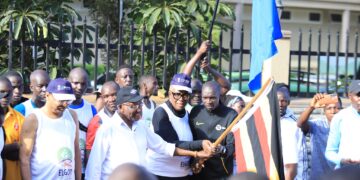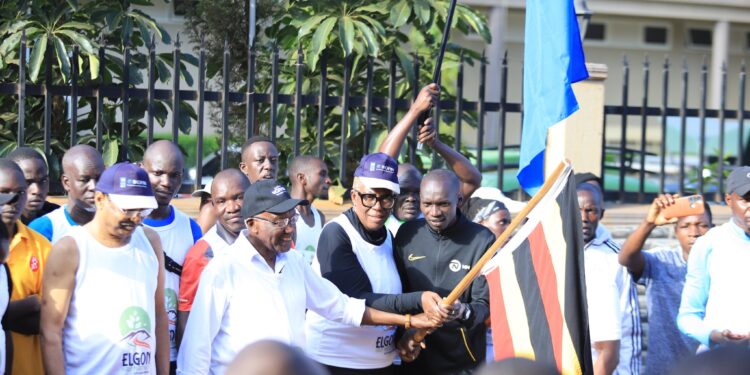The streets of Mbale were abuzz as hundreds gathered for the UNDP Elgon Half Marathon with Joshua Cheptegei, a powerful event promoting climate action, conservation, and community participation in tourism, while advocating for the elimination of gender-based violence (GBV).
Organized by UNDP and the Joshua Cheptegei Foundation, this year’s edition held special significance as it honored the legacy of Rebecca Cheptegei, a talented marathoner who tragically lost her life to an acid attack by her boyfriend. Joshua Cheptegei, a renowned Olympic medalist, emphasized the importance of raising awareness about GBV.
The Elgon half marathon featured three races: 5km, 10km, and 21km, with participants setting off at 8:10am, 8:20am, and 9:15am, respectively. The Minister of Tourism Wildlife and Antiquities, Tom Butiime, Olympic medalist Cheptegei, and UNDP Representative to Uganda, Nwanne Obahor, flagged off the runners.
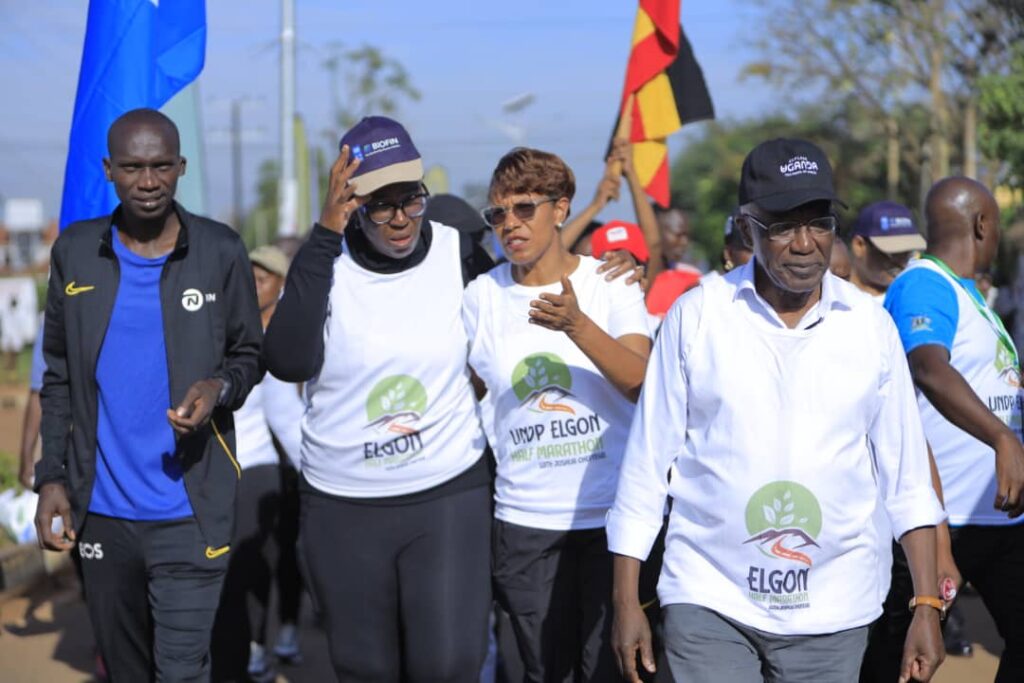
Cheptegei highlighted the marathon’s role in showcasing the Elgon region’s tourism potential, citing attractions like Mount Elgon, Pian Upe, and Sipi Falls. Nwanne Abahor expressed gratitude to the community for participating and pledged commitment to ending GBV and conserving the environment.
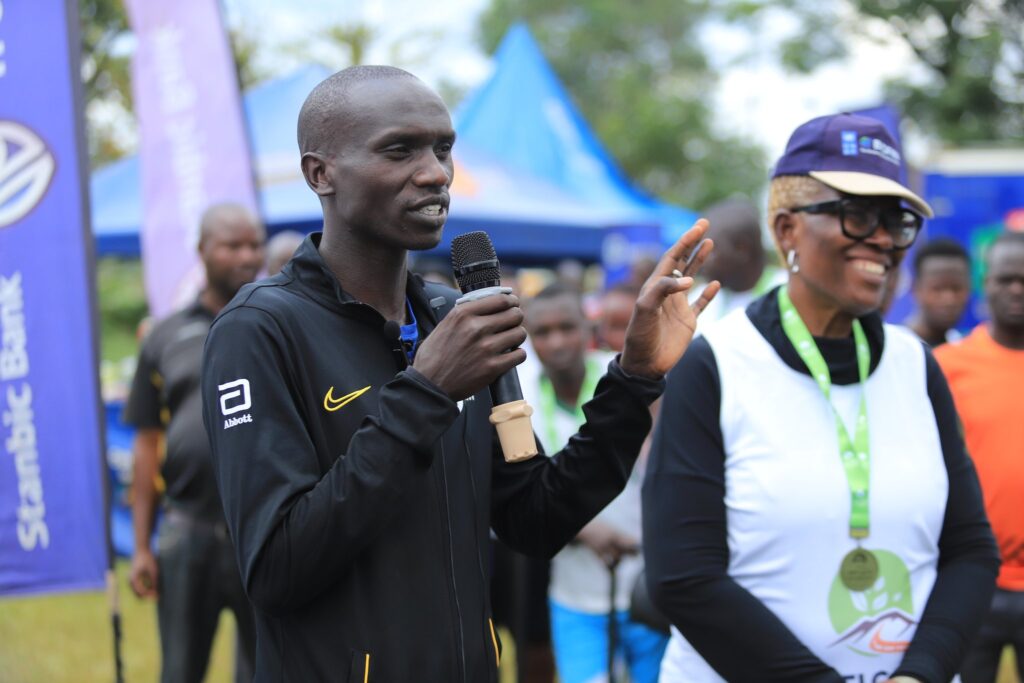
Lilly Ajarova, UTB CEO, underscored the event’s significance, saying, “Mbale city has come to life, and hotel occupancy rates have increased due to this run.” She emphasized sports tourism as a key product in positioning Uganda as a destination of choice.
Nwanne Abahor, UNDP Representative to Uganda, thanked the community for taking part in the marathon, pledging commitment to end GBV while conserving the environment.
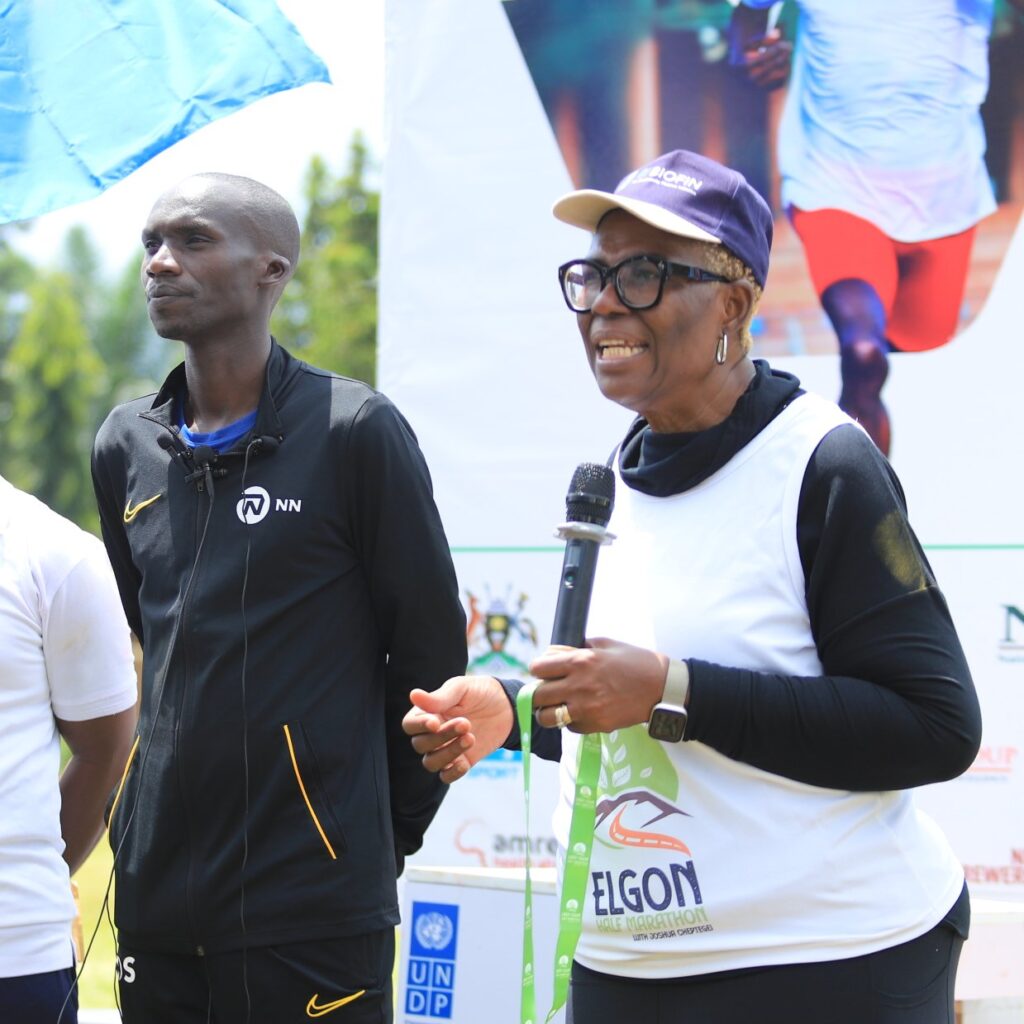
“We are very grateful to the community of Mbale for running with us to shine a light on certain issues. We want to end GBV in communities, we want to conserve the environment in the Elgon region, and we want to promote the tourism potential here in Mbale,” she said.
Mount Elgon National Park, located 140 kilometers northeast of Lake Victoria, covers an area of 1,279 square kilometers, straddling the border between Kenya and Uganda.
MENP covers Mbale, Namisindwa, Kapchorwa, Kween, Sironko, Bukwo, and Bududa districts.
Initially designated as a Forest Reserve in 1929, it officially became a national park in 1994, with ongoing efforts to balance conservation, community engagement, and sustainable resource use.
